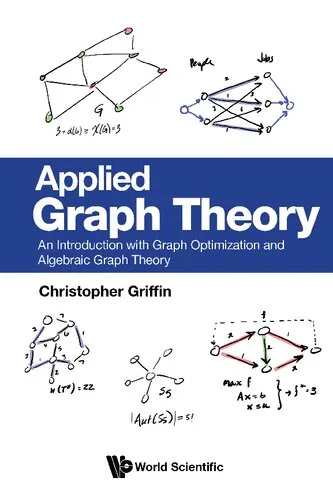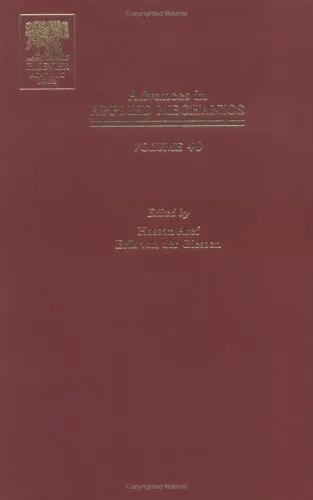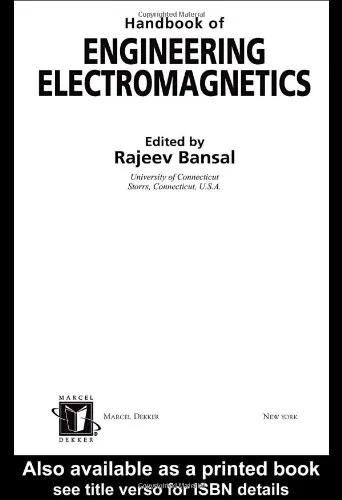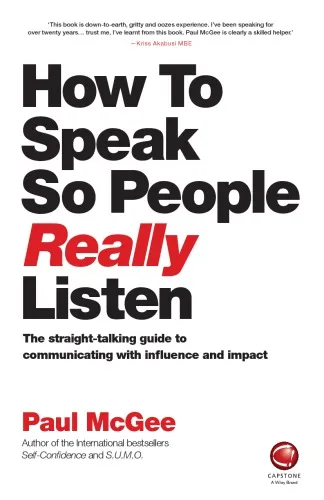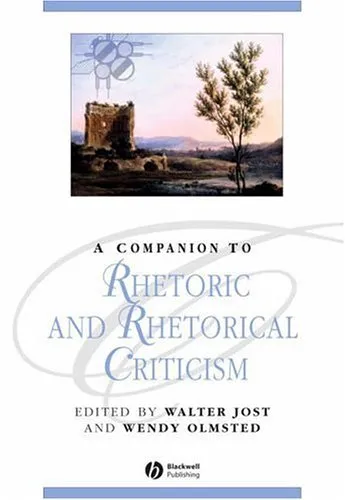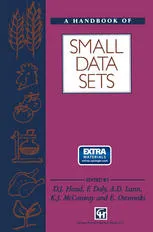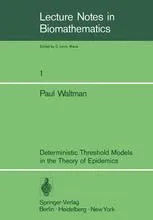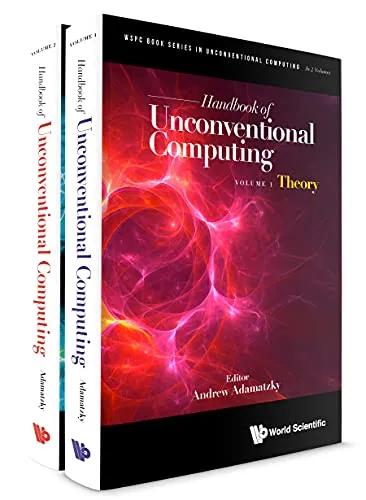The Complete Musician: Student Workbook - Volume I - An Integrated Approach to Tonal Theory, Analysis, and Listening
4.6
بر اساس نظر کاربران

شما میتونید سوالاتتون در باره کتاب رو از هوش مصنوعیش بعد از ورود بپرسید
هر دانلود یا پرسش از هوش مصنوعی 2 امتیاز لازم دارد، برای بدست آوردن امتیاز رایگان، به صفحه ی راهنمای امتیازات سر بزنید و یک سری کار ارزشمند انجام بدینکتاب های مرتبط:
معرفی کتاب
کتاب The Complete Musician: Student Workbook - Volume I - An Integrated Approach to Tonal Theory, Analysis, and Listening یکی از آثار شناختهشده و جامع در حوزهی نظریه موسیقی، تحلیل و شنوایی است. نویسندهی این کتاب، «Steven G. Laitz»، با رویکردی منحصربهفرد، اصول موسیقی تنال را به شیوهای یکپارچه آموزش میدهد. این اثر بهطور گسترده برای دانشجویان موسیقی و هنرمندان حرفهای طراحی شده و شامل تمرینها، توضیحات دقیق و نکات مهمی برای درک عمیقتر موسیقی است.
خلاصه کتاب
این کتاب جامع، مطالعهی موسیقی را فراتر از یادگیری نظریههای پایه میبرد و برای دانشجویانی که به دنبال یادگیری عمیقتر هستند، ابزارهای ضروری ارائه میدهد. در بخش اول، نویسنده با تمرکز بر عناصر پایهای موسیقی، از جمله Harmony، Counterpoint، و Form به شکلی دقیق به مفاهیم اولیه میپردازد. در ادامه، دانشجویان با تمرینهای عملی شنوایی و تحلیل آشنا میشوند که آنها را قادر به درک موسیقی در سطحی فراتر از سطح شنیداری ساده مینماید.
یکی از ویژگیهای برجسته این کتاب، تلفیق مفاهیم نظری با مهارتهای عملی است. برای مثال، دانشآموزان نه تنها درباره Chord Progression یا Voice Leading میآموزند، بلکه یاد میگیرند چگونه آنها را در Composition به کار ببرند. هر فصل شامل چندین تمرین است که به گونهای طراحی شدهاند تا مهارتهای تحلیلی و کاربردی دانشجویان تقویت شود.
نکات کلیدی که یاد خواهید گرفت
- درک عمیق از مفاهیم اصلی Harmony و Counterpoint
- توسعه مهارتهای تحلیلی برای ارزیابی Composition ها
- افزایش توانایی گوش دادن و تحلیل موسیقی از دیدار حرفهای
- یادگیری کاربردی Chord Voicing و Optimal Voice Distribution
- تقویت مهارت شنوایی در تشخیص سیگنالهای موسیقیایی پیچیده
جملات برجسته از کتاب
«Understanding music is not only about rules and techniques. It's about learning how to communicate emotions and ideas through sound in ways that words cannot.»
«The essence of voice leading is not perfection, but clarity. Always aim for the sound that best serves the music.»
«Without listening actively, theory becomes meaningless. Every note and every interval has a story to tell.»
چرا این کتاب اهمیت دارد؟
اهمیت این کتاب ناشی از رویکرد یکپارچه و جامع آن در آموزش موسیقی است. برخلاف بسیاری از کتابهای نظریه موسیقی که به صورت خشک و تئوریک ارائه شدهاند، این کتاب تلاش میکند تا دانشجو را به فردی مستقل در حوزه تحلیل موسیقی تبدیل کند. با استفاده از تمرینهای ساختاریافته و استفاده از مثالهای واقعی از Repertoire موسیقی کلاسیک، این کتاب ابزاری منحصربهفرد است که یادگیرندگان را قادر میسازد تا به سطح پیشرفتهای در زمینه آنالیز و شنوایی موسیقی برسند.
همچنین، این کتاب نه تنها برای دانشجویان موسیقی کلاسیک، بلکه برای هنرمندان موسیقی مدرن و جز نیز مفید است؛ زیرا اصول و بنیادهایی که در آن مطرح شدهاند در تمامی سبکهای موسیقی کاربرد دارند. اگر به دنبال یادگیری عمیق موسیقی و درک مفاهیم آن به گونهای جامع هستید، این کتاب نقطه شروعی عالی است.
Introduction
Welcome to The Complete Musician: Student Workbook - Volume I - An Integrated Approach to Tonal Theory, Analysis, and Listening, a comprehensive guide designed to transform the way students interact with and understand tonal music. Written by Steven G. Laitz, this workbook offers a unique synthesis of theoretical concepts, analytical strategies, and listening exercises grounded in the rich traditions of Western tonal music. It provides an intensive, hands-on approach to developing a deep understanding of the core elements of music, combining rigorous intellectual engagement with creative applications.
The philosophy underpinning this book is built on integration: music theory is not studied in isolation but as an interconnected language that coexists with aural skills, historical context, and practical musicianship. By synthesizing these disciplines, The Complete Musician equips students not only to analyze but also to internalize music, forming a bridge between academic study and real-world musical practice. This workbook, specifically the first volume, caters to introductory-level learners and ensures a strong foundation for advancing in the study of tonal music.
Detailed Summary of the Book
This volume of the workbook is structured to progressively build knowledge—starting from the basics of musical notation and tonal harmony to more advanced topics such as contrapuntal techniques and structural analysis. Each chapter begins with core concepts that are gradually expanded through exercises and activities that encourage active engagement with music. A key feature of this workbook is its multivalent approach: students are required to work on written analyses, aural skills, and compositional tasks simultaneously.
Topics covered include scales, intervals, triads, diatonic harmony, voice-leading principles, harmonic progressions, and an introduction to formal analysis. Each concept is explored in depth using real music literature from classical, romantic, and even contemporary composers, ensuring students learn through examples rooted in authentic musical experiences. Supplementary exercises at the end of each section provide avenues for reinforcement and creative exploration, while collaborative activities encourage group learning and peer feedback.
Unlike conventional workbooks that focus solely on theory, this book directly integrates analysis with active listening. Aural training exercises train students to recognize harmonic progressions, motifs, and counterpoint, fostering an intuitive understanding of music’s structure and emotional arc.
Key Takeaways
- Develop a solid understanding of tonal music theory, including scales, chords, and harmonic progressions.
- Master the principles of voice leading and part writing through practical exercises and examples.
- Gain proficiency in analytical techniques that integrate historical and stylistic context.
- Improve aural perception skills by engaging in listening and dictation exercises.
- Apply theoretical knowledge to creative tasks like composition and improvisation.
- Build confidence for advanced studies in music theory, analysis, and musicianship.
Famous Quotes from the Book
"To fully understand the language of music, one must not only speak it but also listen to the voices of the past and pieces yet unwritten."
"Music theory is not just a theoretical construct—it's the key to unlocking meaning, expression, and creativity in every performance."
Why This Book Matters
The relevance of The Complete Musician: Student Workbook - Volume I lies in its ability to address the multiple facets of musical understanding in a cohesive, structured way. At a time when music education often leans heavily on either theoretical abstraction or purely performance-oriented training, this book strikes a balance by combining both approaches. It not only imparts technical skills and theoretical knowledge but also inspires a lifelong appreciation for the depth and beauty of music.
This book is indispensable for students, educators, and musicians seeking a deeper connection to the tonal tradition of Western music. By fostering analytical precision and interpretive insight, it prepares students for advanced studies in composition, musicology, performing arts, and other related fields. Moreover, its emphasis on integrating aural skills ensures that theoretical knowledge is not confined to paper, but becomes a vital part of the musician's toolkit.
In essence, this workbook bridges the gap between theory and practice, offering students not just information but transformation on their journey toward becoming complete musicians.
دانلود رایگان مستقیم
شما میتونید سوالاتتون در باره کتاب رو از هوش مصنوعیش بعد از ورود بپرسید
دسترسی به کتابها از طریق پلتفرمهای قانونی و کتابخانههای عمومی نه تنها از حقوق نویسندگان و ناشران حمایت میکند، بلکه به پایداری فرهنگ کتابخوانی نیز کمک میرساند. پیش از دانلود، لحظهای به بررسی این گزینهها فکر کنید.
این کتاب رو در پلتفرم های دیگه ببینید
WorldCat به شما کمک میکنه تا کتاب ها رو در کتابخانه های سراسر دنیا پیدا کنید
امتیازها، نظرات تخصصی و صحبت ها درباره کتاب را در Goodreads ببینید
کتابهای کمیاب یا دست دوم را در AbeBooks پیدا کنید و بخرید
1422
بازدید4.6
امتیاز0
نظر98%
رضایتنظرات:
4.6
بر اساس 0 نظر کاربران
Questions & Answers
Ask questions about this book or help others by answering
No questions yet. Be the first to ask!


